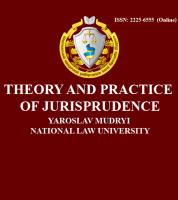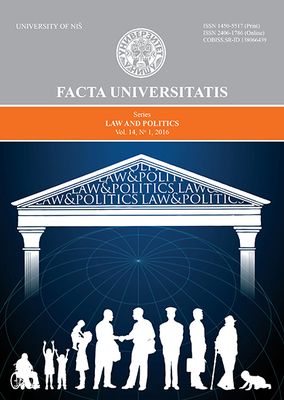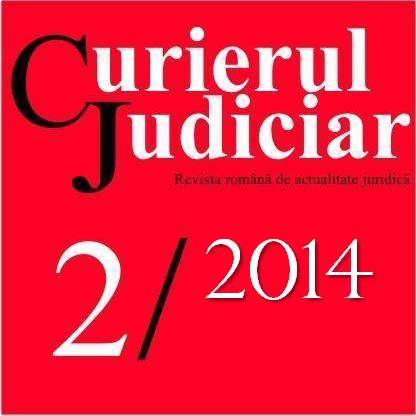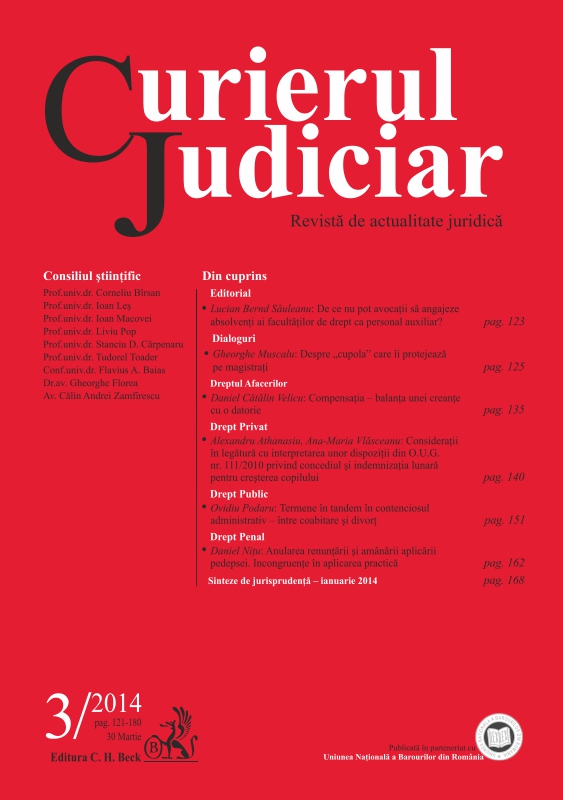Author(s): O. Yevsieiev / Language(s): Ukrainian
Issue: 129/2015
Problem setting. It’s striking that even such seemingly distant from political speculations international jurisdictional authority, as the European Court of Human Rights has nolens volens to give not only a legal qualification of the alleged violations, but also a legal assessment of the historical facts presented by the parties or by the Court office. It is significant that this kind of assessment can cause violent reactions, sometimes even more bitter than that which concerns the violation. In the analysis of such cases, referred to as «sensitive», we see the purpose of this article. It should be emphasized that this topic has never been covered in the domestic legal literature.Recent research and publications analysis. It should be pointed out that these estimates are given by the High Court is not arbitrary, and in the context of another, much broader phenomenon, called «judicial activism». In relation to the activities of the European Court identified the phenomenon manifests itself in several forms. First, it can occur when the Court has several options for interpretation in the framework of its case-law, but it goes beyond that - and then his choice has legal effect, destroying the value of the previous precedents.Secondly, it is not always a clear position on procedural matters, as it was in the «Katyn case» (Janovec and others v. Russia). Then the Court was confronted with an event that took place not only before the ratification of the Convention by the Respondent state (1998), but even before it was born (1950), which was indicated in the dissent of the judge from Ukraine Yudkivska. As a general rule, the Court would have had to reject filed a claim as not corresponding to the criteria ratione temporis, however, the proceedings were not only open, but also culminated in the decision of the full decision, according to which Russia pledged to pay significant compensation to the relatives of the victims. In many respects the situation is similar, but with opposite sign was observed in the case of “Liechtenstein Prince Hans-Adam II against Germany». In the resolution it was stated that the expropriation of the property of the father of the applicant, including expensive paintings P. van Laere «lime Kiln», was carried out by the authorities in the former Czechoslovakia in 1946, that is, until September 3, 1953, when entered into force, the Convention, and before may 18, 1954, when he joined the force of Protocol No. 1 to the Convention. Accordingly, the European court declared itself incompetent ratione temporis to examine the circumstances of the expropriation and its consequences (§ 85 rulings of 12 July 2001). However, in the next paragraph the Court actually decides the issue on the merits, stating that the decisions of the courts of Germany and the subsequent return of the paintings in the Czech Republic can not be considered as interference in the «property» of the applicant within the meaning of article 1 of Protocol No. 1 to the Convention.And finally, third: judicial activism can be seen in the revision of certain facts and events of history, sometimes leading to incorrect or doubtful legal conclusions. The last form of judicial activism and is of greatest interest to us.Conclusions. However, in some «sensitive» cases the Court will deal with the circumstances not only recent, but also very distant past. In such cases, the question arises: should it be avoided at all costs for the review of cases that have a strong impact (geo-) politics, thereby substituting the OSCE and the International Court in the Hague, or does it have its regulations to allow the correction of the effects of the turbulent history of Europe ?
More...







